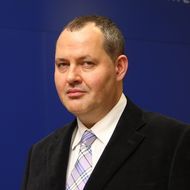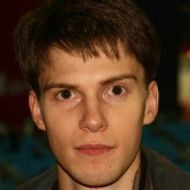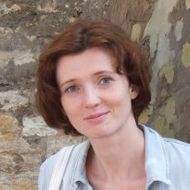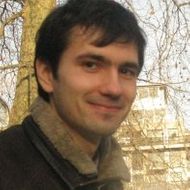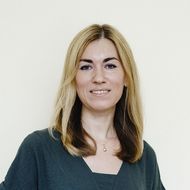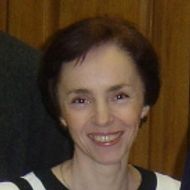- A
- A
- A
- ABC
- ABC
- ABC
- А
- А
- А
- А
- А
- HSE University
- Faculties
- Faculty of Economic Sciences
- News
- The Results of the Prediction Contest Are in!
-
Departments
- Departments
-
Institutes and Centres
-
- Institute of Economics and Utility Regulation
- Institute for Industrial and Market Studies
- Centre for Labour Market Studies
- International Centre of Decision Choice and Analysis
- Centre of Development Institute
- Centre for Financial Research & Data Analytics
- Economic Statistics Centre of Excellence
- Anti-Corruption Centre
-
-
Laboratories
-
- International Laboratory for Macroeconomic Analysis
- International Laboratory of Stochastic Analysis and its Applications
- International Laboratory for Experimental and Behavioural Economics
- Corporate Finance Center
- Laboratory for Banking Studies
- Laboratory for Labour Market Studies
- Laboratory for Sport Studies
- Laboratory for Wealth Measurement
- Project Laboratory for Development of Intellectual Competitions in Economics
- Laboratory for Spatial Econometric Modeling of Socio-Economic Processes in Russia
- Laboratory for Geometric Algebra and Applications
-
- Department of Financial Market Infrastructure
- ICEF
-
Educational Programmes
- Bachelor's Programmes
-
Master's Programmes
-
- Economics and Economic Policy
- Agrarian Economics
- Stochastic Modeling in Economics and Finance (Previously, Master's in Statistical Modelling and Actuarial Science)
- Statistical Analysis in Economics
- Economic Analysis (Online)
- Strategic Corporate Finance
- Financial Markets and Institutions
- Corporate Finance
- Financial Engineering
- Master of Business Analytics (Online)
- Investments in Financial Markets (Online)
-
- Doctoral Programmes
-
Faculty
109028, Moscow,
11 Pokrovsky Boulevard,
Room Т-614
Phone: (495) 628-83-68
email: fes@hse.ru
Founded in 1992, the HSE Faculty of Economics is the university’s oldest faculty. In the years since it was founded, it has gained a reputation as Russia’s leader in terms of higher economic education.
A fundamental education in modern economic theory and mathematics is combined with the study of applied disciplines, such as taxation, budget policies and processes, financial management and other related fields.
Besstremyannaya G., Dasher R., Golovan S.
HSE Economic Journal. 2025. Vol. 29. No. 1. P. 72-102.
In bk.: Advances in Computer Graphics: 41st Computer Graphics International Conference, CGI 2024, Geneva, Switzerland, July 1–5, 2024, Proceedings, Part III. Vol. 15340. Springer, 2025. P. 336-348.
Lyakhovich S., Piontkovski D.
arxiv.org. Physics. Cornell University, 2025
109028, Moscow,
11 Pokrovsky Boulevard,
Room Т-614
Phone: (495) 628-83-68
email: fes@hse.ru

The Results of the Prediction Contest Are in!
Congratulations to the winners of the Nobel Laureate Prediction Contest for Economics 2023!
They are Olga Peresypkina (RSVPU), Anastasia Sirotina (first-year student of the Bachelor's in Applied Mathematics and Information Science at HSE University), Mikhail Shabanov (Global Vision Asset Management LLC), Tatul Hayrapetyan (PhD student at the Stanford Graduate School of Business), and Hemant Kumar (Ettumanoorappan College, Kerala, India).
Four guessers named other favourites besides Claudia Goldin; Olga Peresypkina was the only entrant to bet solely on one name. 'I am a teacher of economics at Ural Polytechnic College and a part-time student of the "Economics and Management. Management of Professional Educational Organisation" master's programme at RSVPU,' said Olga. 'I bet on Claudia Goldin because the topic is relevant to current political events and can have a great impact in the social sphere (labor in the territories needed to rebuild after the conflict in Ukraine).'
One of the successful participants—Tatul Hayrapetyan, graduate of the NES master's programme in economics and current PhD student at Stanford—is also a winner of last year's prediction contest. Last year, he was equally successful in predicting the name of Nobel laureate Ben Bernanke.
Commenting on his doctoral studies, Tatul said: 'I started my PhD two weeks ago, and I'm still trying to get back into the learning process. Stanford is still impressive in its grandeur; I don't fully realise the magnitude of what's going on, but I'm very happy to be in a place like this, to have the opportunity to learn from the best in the business (including Nobel laureates!).' He explained that he actually bet on Goldin a year ago: 'After I predicted Bernanke's victory, I immediately made a bet for a year ahead, but because of my academic workload, I never finished the column on the NES website with this prediction. My strategy was about the same as last year: the pool of candidates is generally clear and does not change much from year to year. So the main thing in this case is to understand what area of research is relevant in a given year and has been "neglected" in the last few years of the prize. So my choice fell on Claudia Goldin and labor market research. But for the second year I failed to guess the intentions of the Nobel Committee—last year, I thought Bernanke deserved the solo prize, but after it was also awarded to Diamond and Dybvig I decided that the committee wanted to recognise more economists. That's why I also bet on Claudia Goldin's husband and co-author Lorenz Katz.'
The 2023 prediction contest received entries from applicants, students, graduates and employees of HSE University, NES, Lomonosov Moscow State University, the Russian Academy of National Economy and Public Administration, FEFU, the Financial University under the Government of the Russian Federation, Bauman Moscow State Technical University, BSEU (Belarus), Kazan University, Oguzhan Engineering and Technology University of Turkmenistan, the University of Bologna, UCLA, Yale University, the University of Luxembourg, the University of Kentucky, the Pontifical Catholic University of Chile, Universidad de Chile, École Polytechnique, Lagos Business School (Nigeria), Stanford GSB, Fordham University, Erasmus University, Bocconi University, the Chinese University of Hong Kong, Cornell University, Harvard University, SGH Warszawa, Bloomberg Economics, Bank of Russia, Sberbank, the Institute of Economic Strategies of the Russian Academy of Sciences, the State Duma, IBM Taiwan, Liberia Maritime Authority, Alfa Capital, Horizon Capital, X5, Islami Bank Bangladesh PLC, Sello.uz, Medusa, TNAU, NYU, the University of Naples Federico II, George Mason University, Universidad Santo Tomas, International Business School, Mises Institute, Euclid University, the AI Institute of Seoul National University, Northern Illinois University, Fatima Jinnah Women University, National and Kapodistrian University of Athens, the London School of Economics, the University of Melbourne, Indian Statistical Institute, Universidad de Carabobo, University of Ghent, HUJI, the World Economic Forum, Patliputra University (Patna, India), and Ettumanoorappan College.
- About
- About
- Key Figures & Facts
- Sustainability at HSE University
- Faculties & Departments
- International Partnerships
- Faculty & Staff
- HSE Buildings
- Public Enquiries
- Studies
- Admissions
- Programme Catalogue
- Undergraduate
- Graduate
- Exchange Programmes
- Summer Schools
- Semester in Moscow
- Business Internship
-
https://elearning.hse.ru/en/mooc/
Massive Open Online Courses
-
https://www.hse.ru/en/visual/
HSE Site for the Visually Impaired
-
http://5top100.com/
Russian Academic Excellence Project 5-100
- © HSE University 1993–2025 Contacts Copyright Privacy Policy Site Map
- Edit
